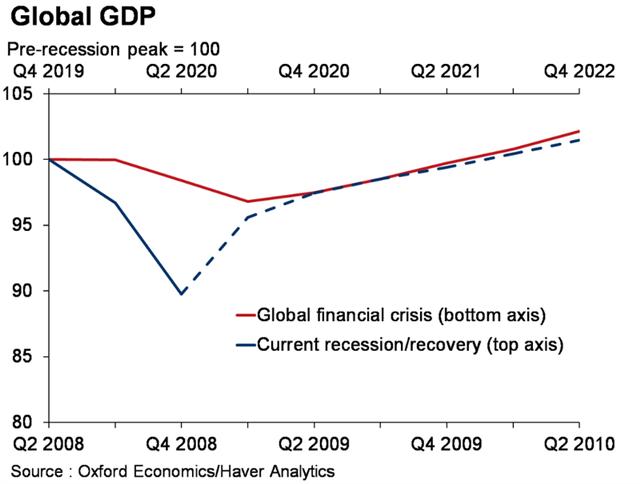Vietnam recovery prospects remain brightest in Southeast Asia: ICAEW
Vietnam recovery prospects remain brightest in Southeast Asia: ICAEW
In 2020, Vietnam’s GDP growth is set to hit 2.3% and then rebound strongly to 8% in 2021.
The recovery prospects look brightest for Vietnam, which is expected to be the only Southeast Asian economy to record positive growth this year, according to the latest Global Economic Outlook report from Oxford Economics.

The recovery prospects look brightest for Vietnam.
|
In 2020, Vietnam’s GDP growth is set to hit 2.3% and then rebound strongly to 8% in 2021, stated the report commissioned by chartered accountancy body ICAEW.
Overall, Southeast Asia's GDP is expected to shrink 4.2% in 2020. It added that the strength of the rebound in economic activity over the coming quarters in the region remains uncertain, particularly in the fourth quarter of 2020, after the expected initial strong bounce in global trade and domestic activity post-lockdowns has faded.
Mark Billington, ICAEW regional director, Greater China and South-East Asia, said there is no long-term solution for economic recovery in Southeast Asia, referring to the existing US-China tensions, a long-term slowdown in global trade activity, and a prolonged Covid-19 pandemic weighing on the region’s growth prospects.
The report expected countries that have effectively contained the pandemic such as Vietnam and Thailand would see a stronger recovery than Indonesia and the Philippines, which are battling new waves of Covid-19 outbreak after restrictions were prematurely relaxed.

|
It noted that both Indonesia and the Philippines remain highly vulnerable as they have weaker public health infrastructure, lower levels of fiscal support available, and are much more consumer driven than others in the region.
The pace of recovery in Indonesia is expected to be slow and household income will be squeezed. GDP is expected to contract 2.7% in 2020 before a 6.2% expansion in 2021. The Philippines is set to record the largest contraction in Southeast Asia, with its GDP falling 8.2% in 2020, because of its dependence on international tourism and a slow exit from lockdown.
Malaysia’s exports meanwhile are predicted to benefit from improving Chinese import demand and the electronics cycle. Nonetheless, the speed of its recovery will likely slow given the current sluggish global demand, high unemployment and weak investment, and its economy is forecast to shrink by 6% this year, followed by growth of 6.6% in 2021.
Given the lack of tangible medical progress towards overcoming the pandemic, among other issues, the report revised down its forecast for global GDP negative growth in 2021 to 5.4% (from 5.8% seen last month) after an expected 4.4% drop this year.


























